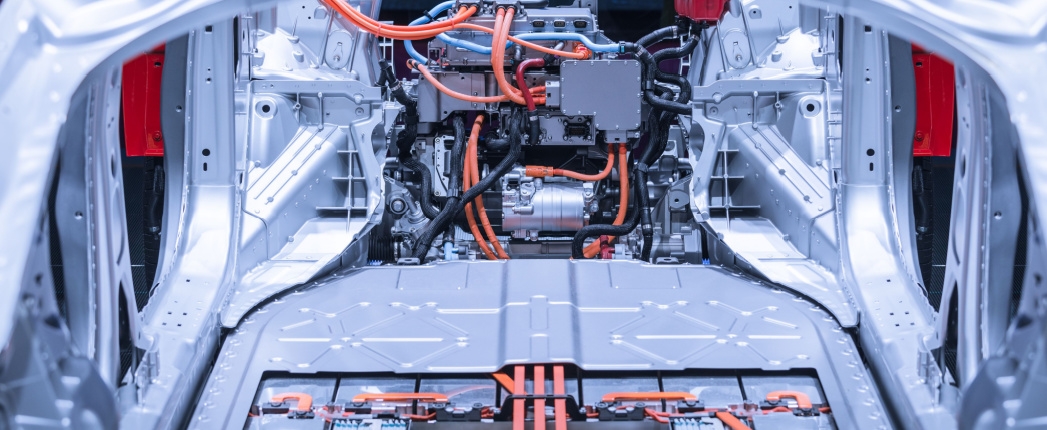
Although the shift to manufacturing of electric vehicles will bring a decline in industrial lubricants consumption, it will also bring opportunities for the fluids from the manufacturing of battery casings and electric motor housings, along with the increased demand for copper wire, a consultant said during an American Chemical Society online webinar last week.
Demand for metal forming fluids is probably going to increase and remain in high demand still for use in making vehicle bodies, which are still needed for battery electric vehicles, said Neil Canter, Philadelphia-based consultant at Chemical Solutions, on Nov. 16 during an ACS webinar titled “More Than an Oil Change: Industrial Lubricants and Electric Vehicles.”
Canter noted that battery casings are primarily produced through metal forming operations. “There is a series of them – bending, blanking, drawing, embossing,” he said.
Metalworking fluids are used for die casting – which he explained is more like a system-type application to metalworking – particularly aluminum die casting, which is involved in manufacturing of electric motor housings. In die casting, molten metal is forced into metallic molds under hydraulic pressure to shape it and form objects.
Demand for copper wiring is expected to increase. With cars already becoming more reliant on electronics, moving to a battery electric vehicle will bring even more new electronics systems on vehicles, he suggested. “So the amount of wiring in there is going to go higher, and this will mean there will be increased demand for wire drawing and metal forming operations, particularly for copper wire.”
He said that overall, the transition to manufacturing of more EVs than internal combustion engines is projected to cut consumption of industrial lubricants significantly, before automotive engine oil use will decline. Those fluids include metal removal fluids, hydraulic fluids, gear oils, way lubricants, heat treat or quenching fluids and die cast fluids.
Canter noted that factors affecting how rapidly the transition to EVs will take place include corporate sustainability goals, governmental regulations, battery development, consumer acceptance and infrastructure, including supply chain issues.
“The way I see it at this point is, the drive to sustainability – particularly from corporate, particularly from original equipment manufacturers – is moving this thing along at a rapid pace,” he said. “Companies are announcing various battery plants, electric vehicle plants, and they’re combining resources together resources to develop new technologies.”
While acknowledging government regulations, such as in the European Union and China in particular, are pushing the transition to EVs a bit, Canter said he considers that a bit of a secondary factor at this point.
“Battery development is a key one here, because the battery is the heart of the battery electric vehicle, and there are still more opportunities here, as I see it,” he said. “And opportunities beyond lithium-ion batteries – people are looking at other different types of batteries.”
Consumer acceptance remains a key question to how rapid the transition to EVs takes place, he noted. “That’s going to be a difficult one as we look at both things like range, as well as speed of recharging,” Canter said.
He explained that the infrastructure aspect is not just about finding charging stations when driving an electric vehicle, but also the supply chain standpoint in terms of getting all the raw materials necessary to build an EV. “It’s a lot more complex supply chain for a battery electric vehicle than for an internal combustion engine vehicle at this point,” Canter said. “There may be fewer components involved [for an EV], but there are more things that need to be done. All of these are challenges, and the sooner these can be overcome, the sooner the transition will take place.”